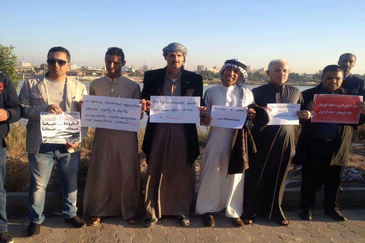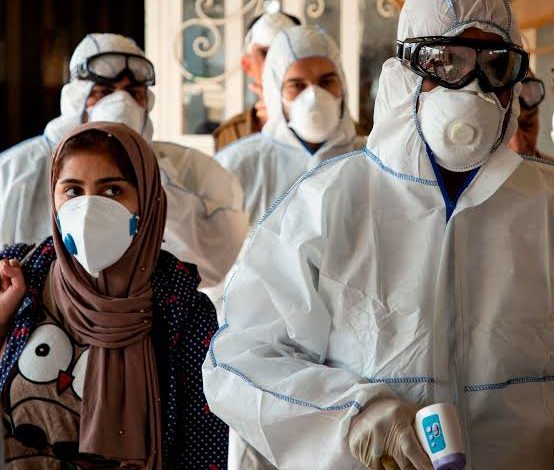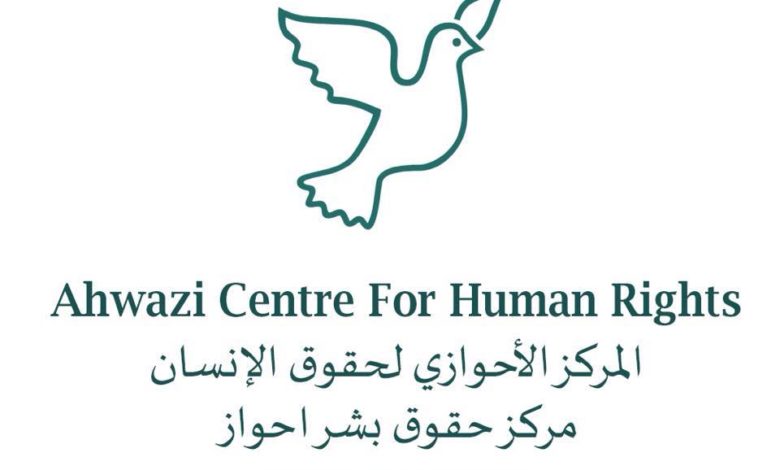Ahwazi villages become ghost towns due to pollution, lack of water in the shadow of Iranian regime oilfields

According to Ahwazi eyewitnesses who visited more than 10 villages located in the oil-rich ‘Crete’ region near Ahwaz city, the wretched suffering of residents in these almost forgotten villages where the regime has established dozens of oil and gas fields in the surrounding area is beyond words.
The villagers, who have received no compensation for the horrendous unchecked pollution from the oil-drilling operations, are forced to dig down deeper and deeper to find potable groundwater for themselves and for the livestock who are their sole source of income and sustenance. Without pumping equipment, the Ahwazi Arab villagers must use buckets to retrieve the water, which is unfiltered. Speaking to Ahwazi Monitor on condition of anonymity due to fearing possible retaliation by the regime, an Ahwazi villager said: “We have to go to Ahwaz city [the regional capital] to fill out water request vouchers in the municipality building, and even after that it takes several days till we see a water truck bringing us some water, but it’s only one truck per week, sometimes one every two weeks, and our villages are located one after another and often the water doesn’t reach all the outlying villages.
Our villages have become ghost places, all the palm trees and other plants have dried out and their fronds have fallen and lie on the ground like skeltons. We don’t know what crime we’ve committed that we should suffer such pain and misery. We sold most of our animals so we don’t have any source of income. We still have some cows and sheep, but we can’t even provide water for them when we struggle to get water for ourselves. Many of us have developed stomach problems and many have died of bowel cancer and other diseases due to the pollution of the air and water. What water there is dirty groundwater dug from a hole from deep below the ground. Its colour is filthy and it has a smell of oil in it. We lost dozens of cows and sheep who got sick and died of poisoning due to drinking this polluted water, which has oil in it due to our area sitting on massive oilfields. Despite this, we see no profit and no money at all from this oil. All the people who work in these oil and gas industries are strangers from other provinces. Sometimes we encourage our sons to go there [to the oilfields] and ask them if they need any workers, but instead of responding, they play the fool and ask us, ‘Where are you from? Your accent and your name seem Arabic’ and humiliate and ignore us as if we’re worthless. When we get angry and tell them, ‘This is our land and our oil, we need to work here, they laugh at us and tell us, ‘your words smell bad – you speak like those Ahwazi Arab separatists. Look – listen to who put these words in your minds to remind us of such words.’
Despite many problems, our children attend schools in other villages and some of them went to university, but after they graduated they came back home and got nothing.” One lady in the village told the Ahwazi Monitor, “During the searing hot summers, to adding insult to injury we are faced with frequent power cuts which last between 48 and 73 hours before we have electricity again.”
Another woman responds despairingly, “Mother, where can we go? No water, no work in the oilfields, no animals and no palm trees. How can we make a living? Please take some pictures and share them with the world. Maybe someone will hear us and see us; we are buried in misery and agony.”
C: Rahim Hamid
S: aLiBz




